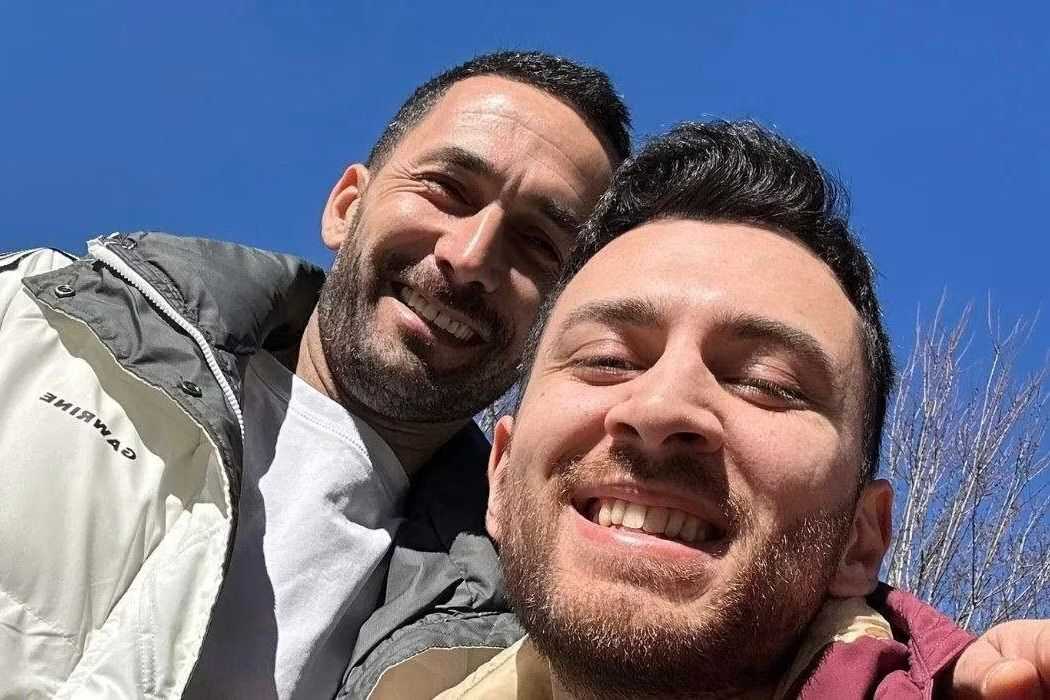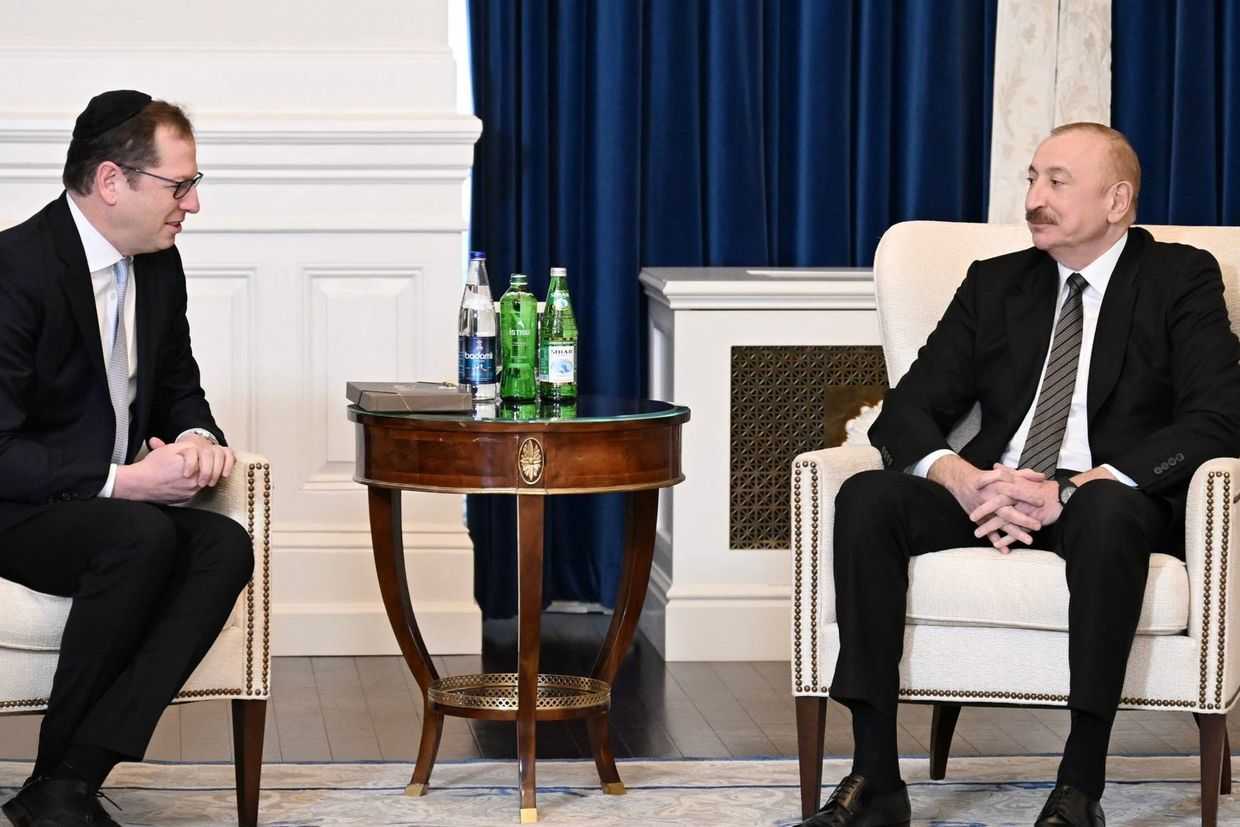
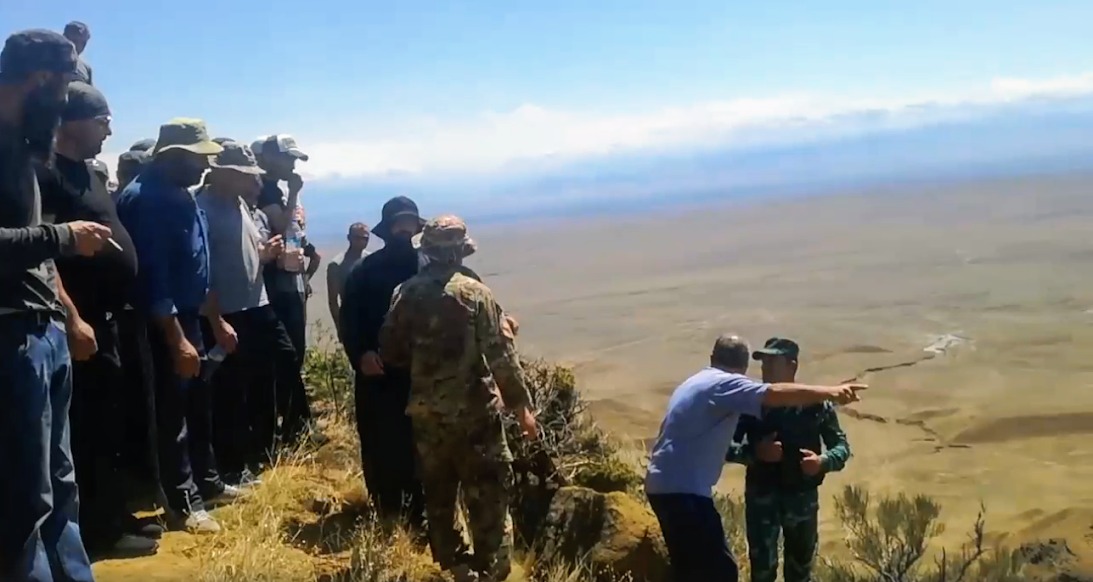
The Davit Gareja monastery complex (known as Keshikchidagh in Azerbaijan) is at the centre of a new row following an altercation between Georgian activists and Azerbaijani border guards. Azerbaijan closed access to Udabno Monastery following the incident.
On 14 July, Georgian Orthodox Christian parishioners and activists confronted Azerbaijani border guards while attempting to return Georgian Orthodox icons to caves and monastic cells on the disputed south-west slope of the 6th-century complex.
In footage of the altercation posted online, one Azerbaijani border guard is heard telling another to tell the Georgian activists to return a weapon to him that they had allegedly stolen.
The large medieval monastery complex, which includes over 20 monasteries, as well as hundreds of monastic cells and chapels, sits on the border between Georgia and Azerbaijan and has long been subject to rival claims by the two countries.
Rival accusations
Several Georgian Facebook users accused Azerbaijani border guards of using the caves as toilets and littering the area.
Georgian authorities confirmed that their Azerbaijani counterparts had handed over the icons to them several days earlier.
Teimuraz Kupatadze, the Deputy Head of Georgian Border Police, said that the Azerbaijanis delivered icons to them citing bad weather conditions, as they wanted to prevent accusations of damaging the religious objects deliberately.
Kupatadze denied allegations of littering, insisting it was tourists and religious pilgrims who had been making a mess at the site.
Davit Katsarava, leader of the Power is in Unity activist group who led the charge to the border, said that Azerbaijan delivering the icons to Georgian authorities sent a ‘message that the Udabno monastic cells were not the property of Georgia anymore’. He accused the Georgian authorities of inaction.
Following the altercation, Azerbaijan promptly closed the border with Georgia near the complex and summoned the Georgian ambassador in Baku. They called the incident a ‘provocation aimed at driving a wedge between the two countries’.
Authorities in both countries have confirmed the incident took place and stated that they were jointly looking into it.
On 17 July, Khalaf Khalafov, the Special Representative of the President of Azerbaijan for Border Issues and the Caspian Sea, said he ‘presumed’ the Georgian government was not behind the incident. However, he said that Georgian border guards were responsible for letting ‘provocateurs and criminal elements into the territory of the Republic of Azerbaijan’.
On 15 July, the Georgian Foreign Ministry urged Georgian citizens to exercise restraint in order to ensure a proper environment for the joint Azerbaijani-Georgian delimitation commission to continue its work.
The same day, officials from both countries met at the border.
The joint commission met twice in May and is set to resume work ‘in several weeks’ as said in a statement by Georgian PM Mamuka Bakhtadze.
According to Baku-based journalist Seymur Kazimov, the issue of Davit Gareja had previously been discussed in Azerbaijan only among politicians and journalists and had ‘appeared on the public agenda’ only after this latest incident.
‘Now the attention of society is focused on it’, Kazimov told OC Media.
He added that Azerbaijani and Georgian authorities ‘try to avoid this topic’ in public discussions.
Following the incident, Paata Zakareishvili, formerly Georgia’s State Minister for Reconciliation, criticised the Georgian government for letting the activists approach Azerbaijani soldiers and argue with them.
He urged the authorities to solve the issue of access to the monastery complex first, rather than trying to reach an agreement on the border issue with Azerbaijan.
Long contested
Georgia and Azerbaijan share a 480-kilometre long border, a third of which has not yet been delimited.
The first of the recent controversies began after a visit on 20 April by Georgian president Salome Zurabishvili to the site. Zurabishvili posed with Georgian border guards and said that the issue of border delimitation ‘should be resolved as soon as possible’. She previously raised the issue during a visit to Azerbaijan on 27 February, when she met Azerbaijani President Ilham Aliyev.
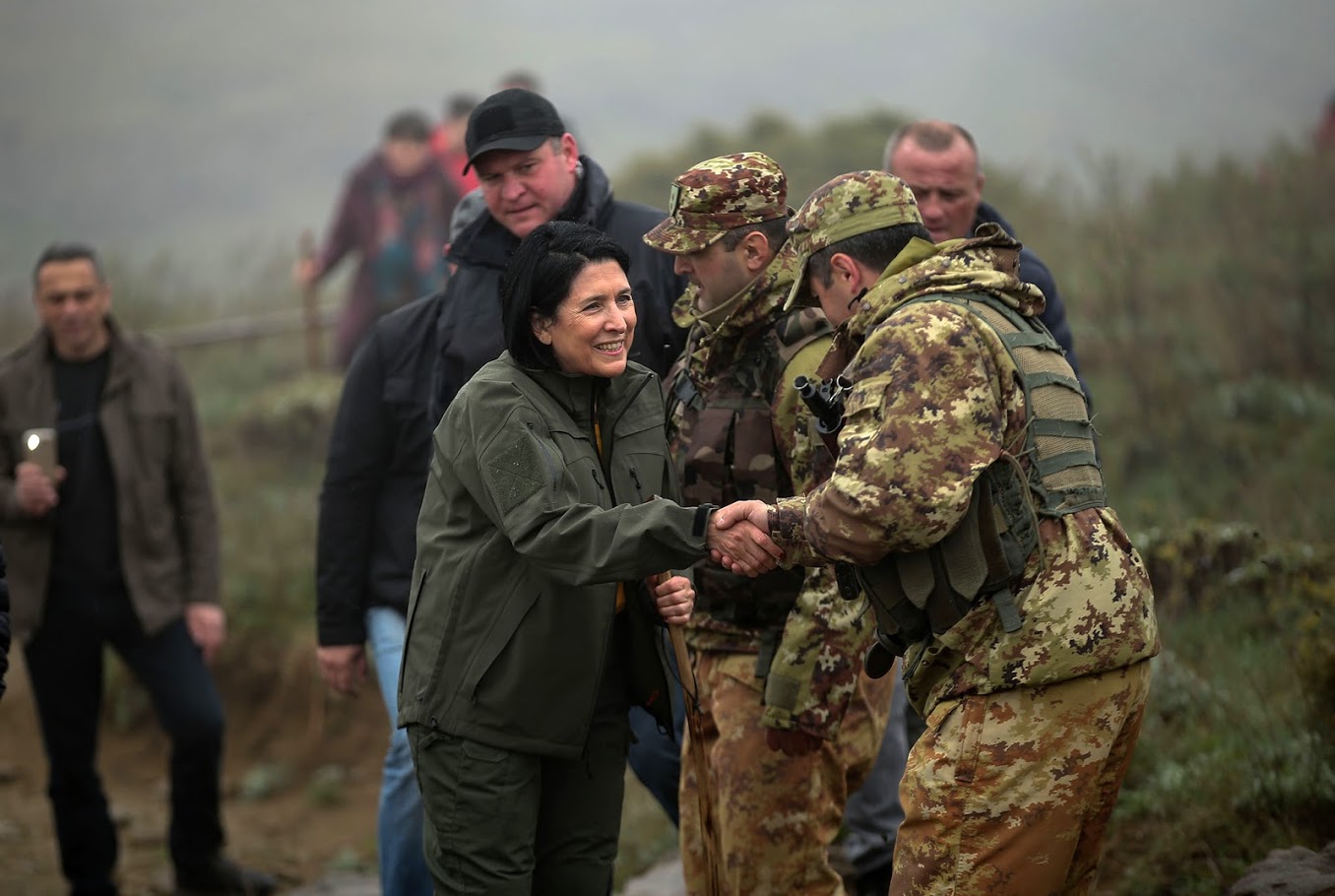
Soon after Zurabishvili’s trip to Davit Gareja, Azerbaijan closed access to the Udabno Monastery for several days.
[Read more on OC Media: Azerbaijan restores Georgian access to Davit Gareja monastery]
The ban triggered protests both at the Monastery complex and in front of the Azerbaijani Embassy in Tbilisi on 26–27 April.
Georgian activist groups and clerics also held several rallies at Davit Gareja in late May.
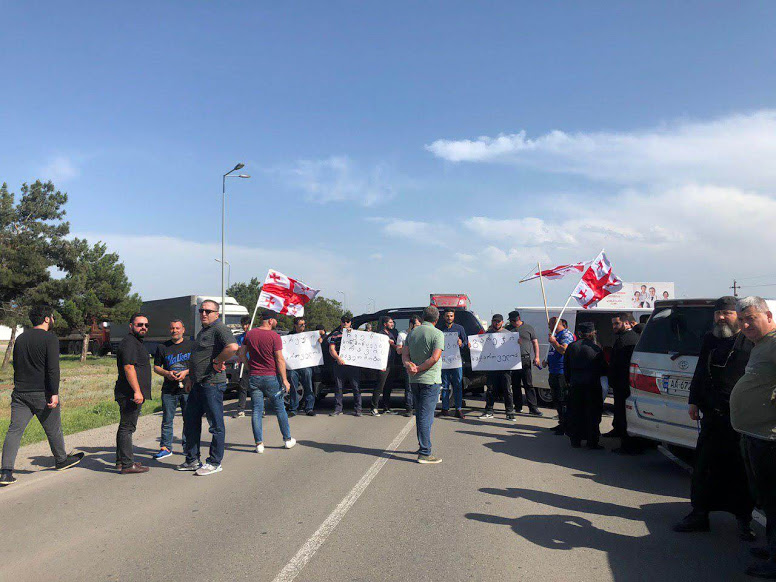
A similar controversy occured in May 2012, when Azerbaijan restricted access for tourists travelling from Georgia to the Udabno Monastery for 15 days.
Azerbaijan has claimed the area is the site of ancient Caucasian Albanian origin and part of Azerbaijan’s cultural heritage.
‘We shouldn’t succumb to provocations’, the head of the Georgian Orthodox Church, Patriarch Ilia II, stated on 27 May, warning against any third parties working to disrupt Azerbaijani–Georgian relations.
Earlier that month, the Patriarch’s office disavowed anti-Muslim statements after Archimandrite Iobi said the controversy could turn into a ‘religious war’ and that priests should be first to lead ‘if blood needs to be spilt’.
[image; caption: In a 14 July Facebook video address, Archimandrite Illarion, based at Davit Gareja Monastery, claimed there was no controversy around the area until 2005, and said that the delimitation commission had failed to deliver any results]
On 17 July, Khalaf Khalafov a representative of the Azerbaijani President, said that the territories surrounding the Davit Gareja complex ‘always belonged to Azerbaijan’, referring to maps issued by Soviet Georgian authorities in 1963.




